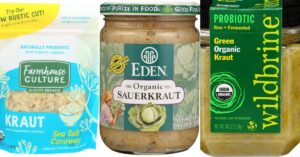The morning after drinking, it’s not just your head that feels heavy. Your stomach may feel unsettled, you’re bloated, or you notice that strange brain fog that makes everything harder. As a doctor, I’ve seen this countless times—and I’ve felt it myself.
Alcohol doesn’t just leave you with a hangover; it disrupts your gut, one of the most important systems for your overall health. That’s why so many people search for how to restore gut health after alcohol—because the effects reach far beyond a single night out.
The good news? Your gut is resilient. With the right steps, you can bounce back quickly and even strengthen your microbiome long term. In this article, I’ll walk you through exactly how to restore gut health after alcohol, from immediate recovery to long-term strategies for lasting balance.
Why Alcohol Disrupts Your Gut in the First Place

The gut microbiome explained simply
Think of your gut as a bustling city. Inside it live trillions of tiny residents—bacteria, fungi, and other microbes—that keep things running smoothly. They help digest food, produce vitamins, train your immune system, and even talk to your brain through the gut–brain axis. When the community is balanced, you feel energized, focused, and healthy. When it’s out of balance, everything feels “off.”
How alcohol causes imbalance (dysbiosis)
Alcohol is like a natural disruptor to this city. Even moderate drinking can:
- Reduce the number of good bacteria like Akkermansia and Faecalibacterium, which protect your gut lining.
- Allow harmful bacteria to grow, producing toxins and inflammation.
- Damage the protective barrier of your gut wall, leading to “leaky gut,” where harmful substances slip into the bloodstream.
This imbalance is called dysbiosis, and it’s one of the main reasons people experience bloating, diarrhea, or fatigue after drinking.
Short- vs. long-term effects
- Short term: One night of drinking can slow digestion, dehydrate your gut lining, and trigger bloating or diarrhea. Your microbiome usually starts to recover within a couple of days if you support it.
- Long term: Regular heavy drinking can cause chronic inflammation, nutrient malabsorption, and lasting changes in the microbiome. Over time, this raises risks for liver disease, immune problems, and even some cancers.
Immediate Steps to Support Gut Health After Drinking
Rehydrate and restore electrolytes
Alcohol dehydrates your body and your gut lining. The first step in recovery is simple: drink water—lots of it. But plain water isn’t always enough. Your body also loses electrolytes like sodium, potassium, and magnesium, which are vital for digestion and energy. Coconut water, bone broth, or even a homemade electrolyte drink (water + pinch of salt + squeeze of lemon) can quickly help restore balance.
Gentle, gut-friendly foods the next day
After drinking, your digestive system is inflamed and sensitive. This is not the time to load it with greasy fast food, even if that’s what your cravings are telling you. Instead, choose foods that are easy to digest and soothing:
- Bananas, rice, applesauce, oatmeal
- Steamed vegetables or broth-based soups
- Lean proteins like fish, chicken, or lentils
These foods give your microbiome fuel to repair itself without causing more irritation.
Avoid “gut stressors”
Your gut is already under stress from alcohol, so avoid piling on more triggers:
- Too much caffeine → worsens dehydration and irritates the gut lining
- Processed or fried foods → increase inflammation
- Over-the-counter painkillers like ibuprofen → can further damage the stomach lining when combined with alcohol
Giving your gut 24–48 hours of restful, clean fuel helps it start the healing process much faster.
Proven Ways to Restore Gut Health After Alcohol

Eat fiber-rich foods daily
Fiber is the favorite food of your gut bacteria. When you eat whole grains, beans, vegetables, and fruits, your microbes ferment that fiber into short-chain fatty acids like butyrate—healing compounds that repair the gut lining and reduce inflammation. Aim to fill half your plate with plant-based, fiber-rich foods every day.
Add probiotics & fermented foods
Probiotics are live beneficial bacteria that help restore balance after alcohol-induced dysbiosis. Fermented foods are an easy, natural way to add them to your diet:
- Yogurt or kefir
- Sauerkraut or kimchi
- Kombucha or miso
If you don’t tolerate fermented foods, a high-quality probiotic supplement can be another option.
Support with prebiotics
Prebiotics are special types of fiber that specifically feed your good bacteria. Without them, probiotics can’t thrive. Great prebiotic sources include: garlic, onions, asparagus, bananas, and oats. Adding a few servings a day helps rebuild diversity in your microbiome.
Include anti-inflammatory foods
Alcohol promotes inflammation in the gut and throughout the body. Counteract this with foods that calm inflammation:
- Fatty fish like salmon or sardines (rich in omega-3s)
- Spices like turmeric and ginger
- Colorful berries, leafy greens, and olive oil
These foods don’t just reduce inflammation—they also support healing at the cellular level.
Prioritize sleep & stress management
Your gut bacteria follow a daily rhythm, just like you. When you’re sleep-deprived or stressed, your microbiome suffers. Aim for 7–9 hours of restful sleep and manage stress through practices like walking, journaling, or meditation. This gives your gut the calm environment it needs to heal.
Take short alcohol breaks
One of the most effective strategies to restore gut health is to give it a true break. Studies show that even two to four weeks without alcohol can significantly improve gut microbiome diversity, reduce inflammation, and restore gut lining integrity. Trying a “Dry January” or even a week-long reset can make a noticeable difference in how you feel.
A Sample 24-Hour Gut Recovery Plan
Restoring your gut doesn’t have to be complicated. Here’s a simple, one-day framework you can follow after a night of drinking to help your microbiome recover and reset:
Morning
- Start with a big glass of warm lemon water to rehydrate and stimulate digestion.
- Follow with a probiotic-rich smoothie: unsweetened kefir or yogurt + berries + a tablespoon of ground flaxseeds.
Mid-Morning Snack
- A banana or a handful of soaked chia seeds for easy-to-digest prebiotic fiber.
Lunch
- A bowl of vegetable soup with bone broth as the base.
- Add leafy greens, carrots, zucchini, and lentils or chicken for protein.
Afternoon Snack
- A small serving of sauerkraut or kimchi with whole grain crackers.
- Herbal tea (ginger or chamomile) to soothe the gut.
Dinner
- Grilled salmon (rich in omega-3s) with steamed broccoli and quinoa.
- Drizzle of olive oil and lemon juice for extra anti-inflammatory support.
Before Bed
- A cup of calming tea (peppermint, chamomile, or fennel).
- Lights out early to give your body the rest it needs to repair.
This plan balances hydration, probiotics, prebiotics, fiber, and anti-inflammatory foods—the key pillars of gut recovery.
How Long Does It Take to Restore Gut Health After Alcohol?
After a single night
The gut is remarkably resilient. After one evening of drinking, most people’s microbiome begins to recover within 24–72 hours, especially if you rehydrate, eat nourishing foods, and rest. Bloating, indigestion, or loose stools often improve within a couple of days.
After regular/heavy drinking
Chronic or heavy alcohol use is a different story. The constant disruption to gut bacteria and gut lining can take weeks to months to repair. Research shows that even a 4-week alcohol break can restore microbial diversity, lower inflammation, and improve digestion—but full recovery depends on how long and how heavily someone has been drinking.
Factors that affect recovery
Everyone’s timeline looks different. How quickly your gut heals depends on:
- Age – younger guts tend to bounce back faster.
- Diet – a fiber-rich, nutrient-dense diet accelerates recovery.
- Overall health – pre-existing gut issues (IBS, leaky gut, autoimmune conditions) slow healing.
- Stress and sleep – poor lifestyle habits delay microbiome repair.
- Genetics and microbiome diversity – some people naturally recover faster than others.
The takeaway: one night of indulgence isn’t the end of your gut health, but consistent over-drinking will slow recovery dramatically.
When to Seek Medical Help

Most gut symptoms after drinking—like mild bloating, loose stools, or fatigue—improve within a few days. But sometimes alcohol leaves behind signals your body shouldn’t ignore. Seek medical help if you notice:
- Persistent diarrhea, bloating, or abdominal pain that lasts more than a week
- Blood in your stool or black, tarry stools
- Unexplained weight loss or loss of appetite
- Yellowing of the skin or eyes (possible liver stress)
- Severe fatigue or frequent infections (a sign your immune system is compromised)
As a doctor, I always remind patients: if your gut symptoms don’t improve with simple recovery steps, it’s worth getting checked. Your gut is resilient, but it can also be the first place deeper health issues show up.
Key Takeaways
- Alcohol disrupts the gut microbiome by reducing good bacteria, encouraging harmful ones, and damaging the gut lining.
- One night of drinking may cause temporary bloating or fatigue, but recovery often begins within 1–3 days with the right support.
- Heavy or regular drinking can take weeks to months for full microbiome repair.
- Immediate recovery steps: rehydrate, restore electrolytes, eat gentle foods, and avoid gut stressors like greasy food and excess caffeine.
- Long-term restoration strategies include fiber-rich foods, probiotics, prebiotics, anti-inflammatory meals, quality sleep, stress management, and short alcohol breaks.
Seek medical help if symptoms are persistent, severe, or unusual.
Conclusion
The truth is simple: alcohol doesn’t just leave you with a hangover—it leaves a mark on your gut. While your microbiome is resilient and can recover with hydration, nourishing foods, sleep, and care, the most powerful step you can take is to remove the root cause.
As a doctor, I’ve seen the difference firsthand. Patients who cut alcohol completely don’t just restore their gut—they regain energy, mental clarity, and long-term health in ways that occasional “resets” can’t match.
If you want lasting gut health, stronger immunity, and true balance in your body, the answer isn’t another recovery plan after drinking—it’s choosing to step away from alcohol for good. Your gut, your liver, and your future self will thank you.









